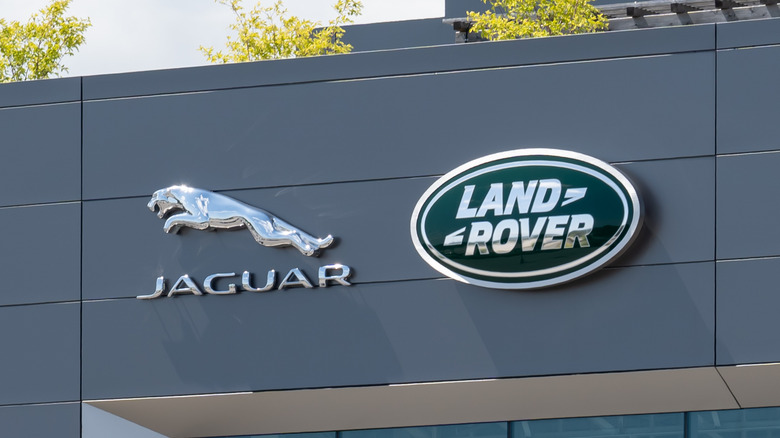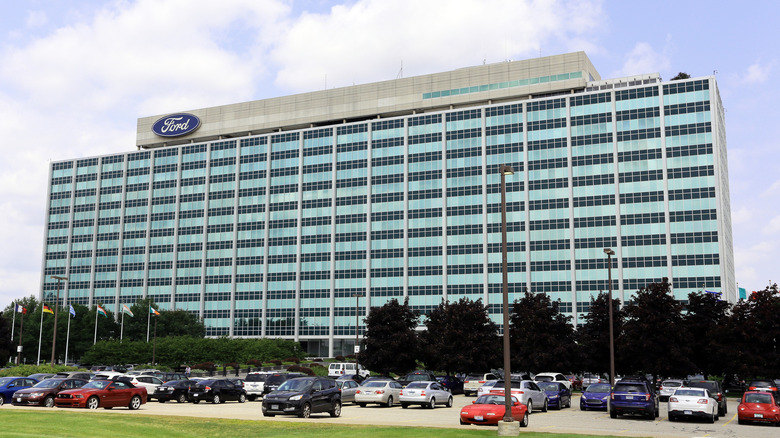The Reason Ford Sold Luxury Brands Jaguar And Land Rover
Jaguar and Land Rover are icons of British automotive history and luxury cars in general. There are few more recognized symbols of wealth than a classic Jag or 'Rover. Even Queen Elizabeth II was known to have a fondness for Jaguar station wagons and Range Rover SUVs. Ironically, however, neither Land Rover nor Jaguar have been British-owned for quite a while now. While the company has maintained headquarters in the British Isles since it first started producing cars in 1935, Dearborn, Michigan's Ford bought up Jaguar for a cool $2.5 billion in 1989. Land Rover has been around as a civilian car brand since 1948. It, too, was absorbed by the Big Blue Oval in 2000.
Under the tutelage of Ford, the Jaguar and Land Rover brands did nothing short of languishing. The financial crisis of 2008 that impacted the entirety of the automotive world didn't help matters much, either. Ford sold Jaguar, Land Rover, Aston Martin, and its shares in Mazda in 2007 and 2008, according to SEC filings from Ford. Jaguar and Land Rover were eventually bought up by Tata Motors, an Indian automotive conglomerate, in 2008.
Not part of Ford's vision for the future
Officially, Ford says its reasoning for placing a "For Sale" sign on Jaguar and Land Rover was to cut down on their overall bloated structure at the time and make the brand a little more cohesive. Ford said this was part of its "One Ford" plan. Unsurprisingly, this helped Ford's financials, with their SEC filing saying, "These sales have also helped our overall liquidity."
The sale of Jag and Land Rover was really a forgone conclusion as early as 2006. Ford's "One Way Forward" plan, the same initiative that killed the Crown Victoria, didn't have room for complicated brand structures and ownership of automotive brands that didn't have anything to do with Ford. As iconic as Jaguar and Land Rover are, they didn't mix too well with Ford's image of down-to-earth cars for regular people. Not for nothing, Ford also stated that it "improved our Ford Blue Oval brand favorability with consumers by re-establishing the brand's historical association with affordable, safe, and sustainable transportation for all, offering the best automotive value." Huge luxury brands must not have been part of that plan.

